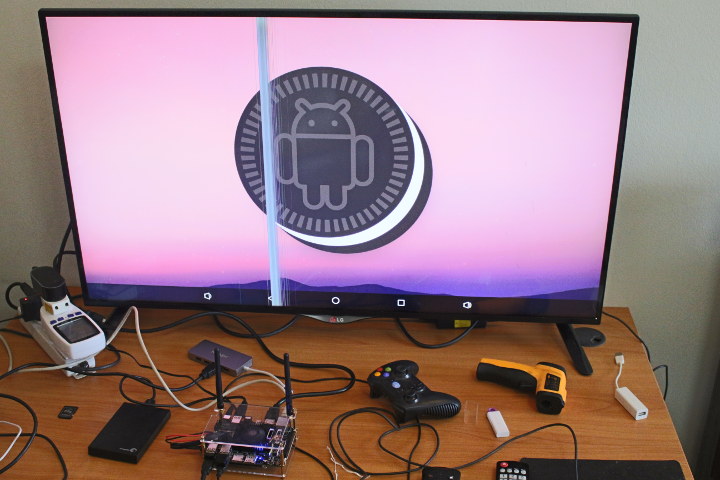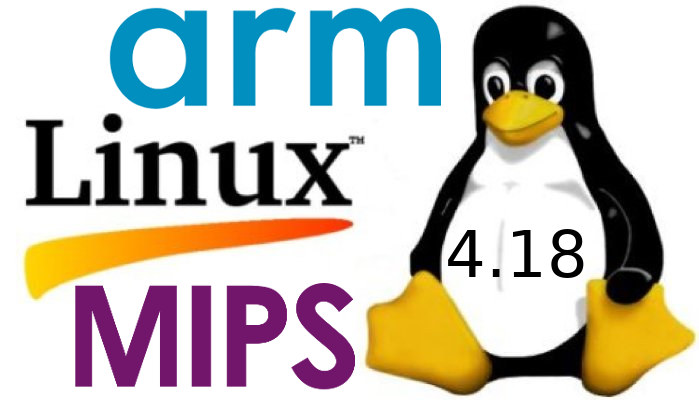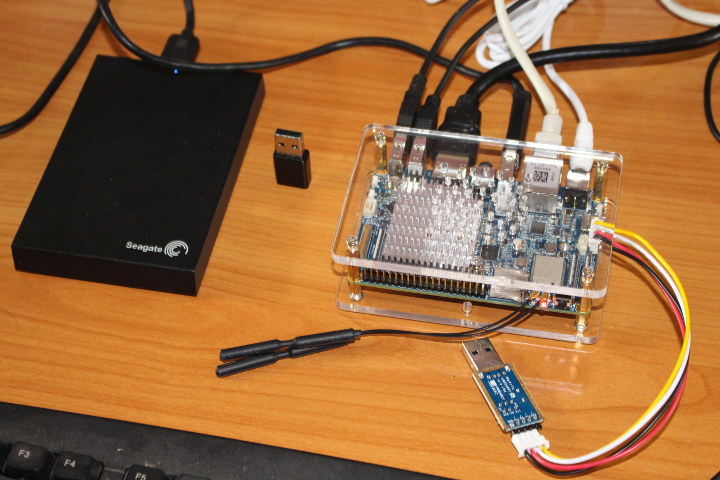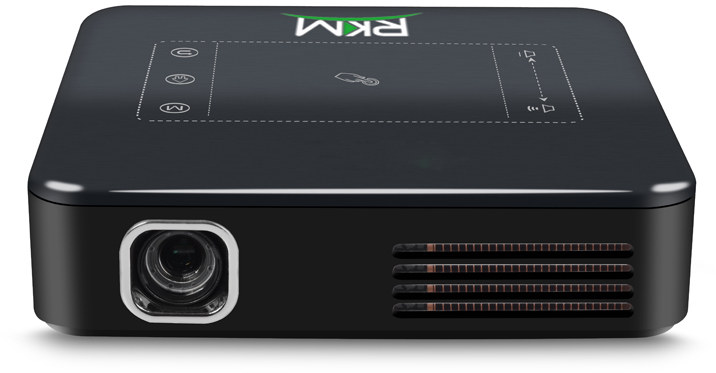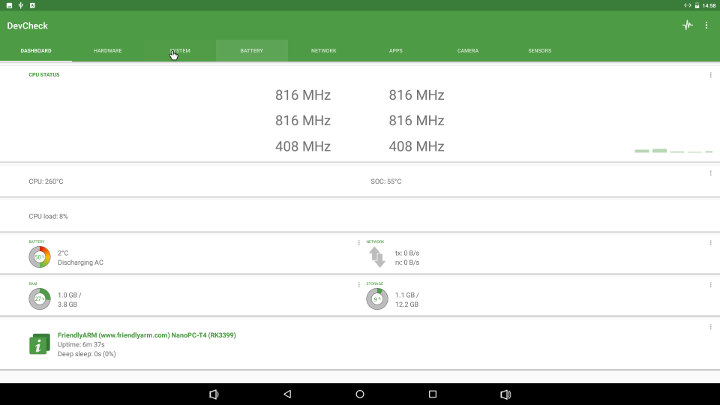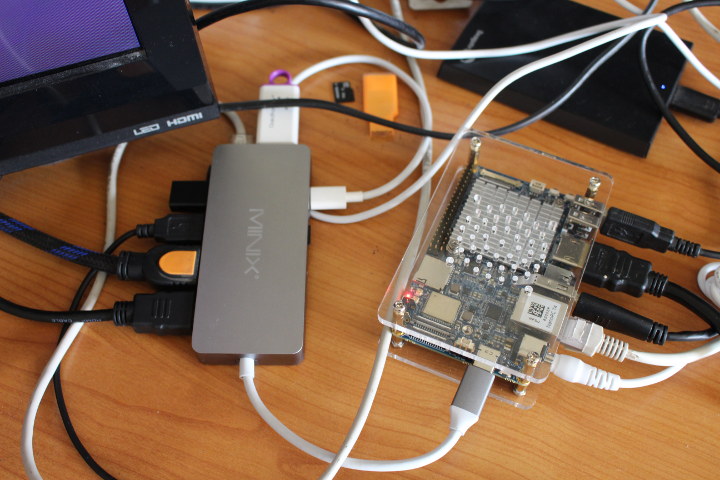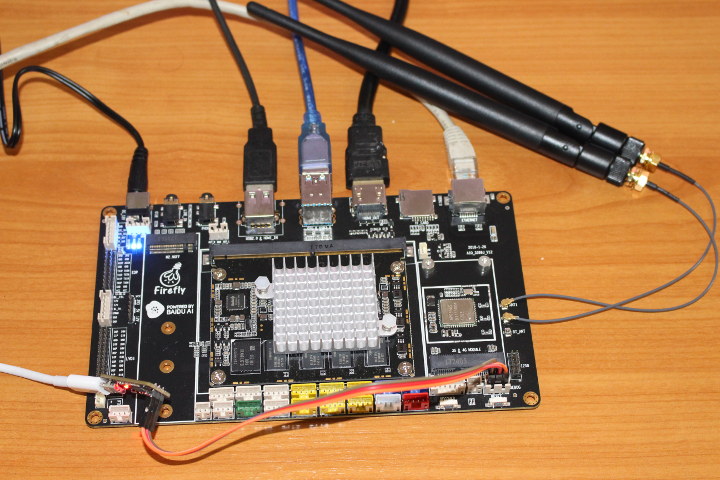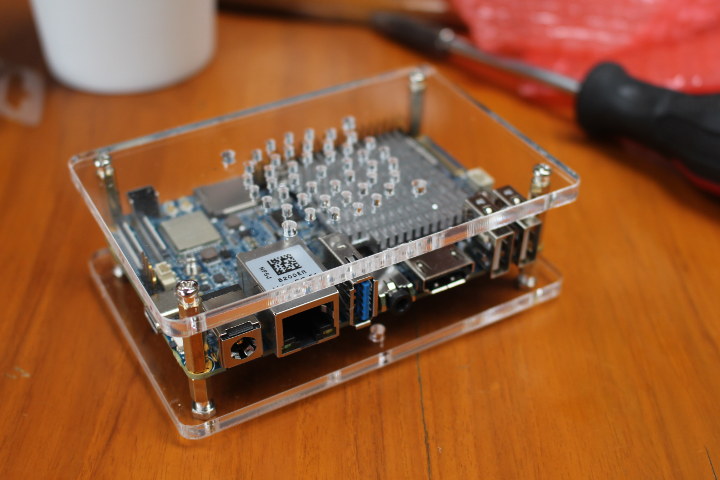Last week, I tested Android 7.1 on NanoPC-T4 Rockchip RK3399 SBC, and this week, I’ve given a try at Android 8.1 (Beta) on Firefly-RK3399 Board. Since it’s still a beta version, I’m expecting some issues and we’ll have to see how it performs at this stage of development. Firefly-RK3399 Kit Assembly I had to do some assembly before starting the board. It took me some 30 minutes to complete, so I’ll quickly go through the steps. Beside the default kit, the company also sent me a fansink ($7.9) and an M.2 to SATA board + required cable ($16) which will be part of the assembly instructions. The first step is to peel off the protective films on both sides of the acrylic case. I then fastened my own 2.5″ hard drive with four screws provided in the default kit. I then installed the M.2 to dual SATA adapter board in […]
Linux 4.18 Release – Main Changes, Arm and MIPS Architecture
Linus Torvalds has just announced the release of Linux 4.18: One week late(r) and here we are – 4.18 is out there. It was a very calm week, and arguably I could just have released on schedule last week, but we did have some minor updates. Mostly networking, but some vfs race fixes (mentioned in the rc8 announment as “pending”) and a couple of driver fixes (scsi, networking, i2c). Some other minor random things (arm crypto fix, parisc memory ordering fix). Shortlog appended for the (few) details. Some of these I was almost ready to just delay to until the next merge window, but they were marked for stable anyway, so it would just have caused more backporting. The vfs fixes are for old races that are really hard to hit (which is obviously why they are old and weren’t noticed earlier). Some of them _have_ been seen in real […]
NanoPC-T4 Review with Android 7.1 Firmware
NanoPC-T4 is one of the many Rockchip RK3399 SBCs now available, and as we’ve seen in the “unboxing review” the company sent me two samples. So far, I’ve been reviewing RK3399 boards with Linux distributions in posts such as “Checking Out Debian and Linux SDK for VideoStrong VS-RD-RK3399 Board” and more recently “AIO-3399J Development Board Review with Ubuntu 16.04“. But in this NanoPC-T4 review, I’ll switch to Android, specifically Android 7.1, as I’ll soon try Android 8.1 on Firefly-RK3399 which might make for an interesting comparison between the two versions of the OS, before switching to Linux with Pine64 RockPro64 board which I received yesterday. First Boot with NanoPC-T4 Development Board I had already assembled the board in the first part of the review, so I just added the two WiFi antennas, the optional USB to serial debug board, and connected various accessories and cables from left to right: USB […]
Rikomagic R5 Mini Projector Features Rockchip RK3328 Processor, Android 7.1
Last year, I reviewed Rikomagic RKM R1 Android mini projector with a typical TI DLP with 854×480 native resolution found in competitors, but what I really like what the touchpad and buttons at the top of the device that made it so much easier to configure and control compared to a device like Doogee P1. However with a Rockchip RK3128 quad core Cortex A7 processor and 1GB RAM, performance was on the lower side, and software already felt a little outdated (in 2017) with Android 4.4 and Kodi 14.2. The good news is that company has now launched Rikomagic R5 mini projector with significantly better hardware (Rockchip RK3328 processor + 2GB RAM), and a more recent Android 7.1 operating system. Rikomagic R5 mini projector specifications: SoC – Rockchip RK3328 quad core Cortex A53 processor with penta-core Mali-450MP GPU System memory – 2GB DDR3 Storage – 16GB eMMC flash, micro SD […]
Checking out DevCheck System Info App for Android on NanoPC-T4 Development Board
There are already a few ways to get system information in Android. The most obvious is just going into the Settings menu, another solution more detailed but less convenient is to access the terminal via adb or an app and run some commands, and finally you can also install apps such as CPU-Z. I’ve been made aware of a new system info app recently called DevCheck, and decided to try it on an Android development board, namely NanoPC-T4 RK3399 SBC. Those apps are often mainly tested on smartphones, so running them on TV boxes or boards do not always yield perfect results. We’ll see. The dashboard section looks good as the app correctly detects six cores and show difference frequencies for each. The hardware part appears to show two clusters one supporting frequencies between 408 MHz and 1416 MHz (Cortex-A53 cores) and another between 408 MHz and 1800 MHz (Cortex-A72 […]
A Quick Look at MINIX NEO C Plus USB-C Adapter, and Windows 10 M.2 SSD Card for N42C-4 Mini PC
A couple of weeks ago, MINIX announced their NEO C Plus USB type C adapter with 9 ports including two HDMI outputs. The company has now sent me samples of the adapter, as well as an M.2 SSD for MINIX NEO N42C-4 pre-loaded with Windows 10 Pro. I’ll first have a look at the accessories I received before testing MINIX NEO C Plus adapter with Android 7.1 running on NanoPC-T4 board. MINIX NEO C Plus and M.2 SSD Unboxing I received two USB-C multiport adapter with dual HDMI output which are identical, except for the color with one white version and a silver version, as well as a “128GB M.2 SSD for MINIX NEO N42C-4”. The USB-C adapter comes with a bilingual English-German user manual. We learn some interesting information and limitations from the device. First, the adapter is only certified to use with MacBook and MacBook Pro laptops, and […]
AIO-3399J Development Board Review with Ubuntu 16.04
Regular readers will know that Firefly team sent me several of their Rockchip boards for evaluation, and I started with a review of ROC-RK3328-CC development board powered by Rockchip RK3328 processor. This time, I went with the high-end AIO-3399J board comprised of a features-packed baseboard and a Rockchip RK3399 system-on-module. Just like with the previous review, I’ve decided to focus on Linux support, in this case Xunbuntu 16.04, and I’ll do an Android review on the company releases Android 8.1 for Firefly-RK3399 board. First Boot with AIO-3399J Board Before booting the board, I inserted the heatsink, and connected the provided WiFi antennas. I also connected some devices and cables, including a mouse, the male to male USB cable to the top USB 3.0 (OTG) port for firmware update, a HDMI cable to my TV, and Ethernet cable, as well as the serial debug board. The final step was to connect […]
FriendlyELEC NanoPC-T4 Board Kit Unboxing and Assembly
FriendlyELEC introduced NanoPC-T4 RK3399 SBC (Single Board Computer) last May for $129. The board comes with a Rockchip RK3399 hexa-core processor, 4GB RAM, 16GB eMMC flash, dual-band WiFi module and an M.2 socket with NVME (PCIe) SSD support. The company has now sent me the device with accessories for review / evaluation. In this post, I’ll check out all items received, and show how to assemble all components. NanoPC-T4 Board Kit Unboxing Let’s getting started, and open the package… I received two identical kits with two NanoPC-T4 boards, acrylic enclosure with spacers, screws and nuts, 12V/2A power supply, heatsink, and an RC-100 IR remote control. In theory, I also expected two WiFi antennas per kit since that’s part fo the kit in their website, but I did not see any. The remote control is an optional item. [Update: Ooops. I found the antennas inside the package for NanoPC-T4 board.] I’ve […]


